SURVIVING THE STORM: IOM HELPS FAMILY REBUILD HOME AFTER DISASTER
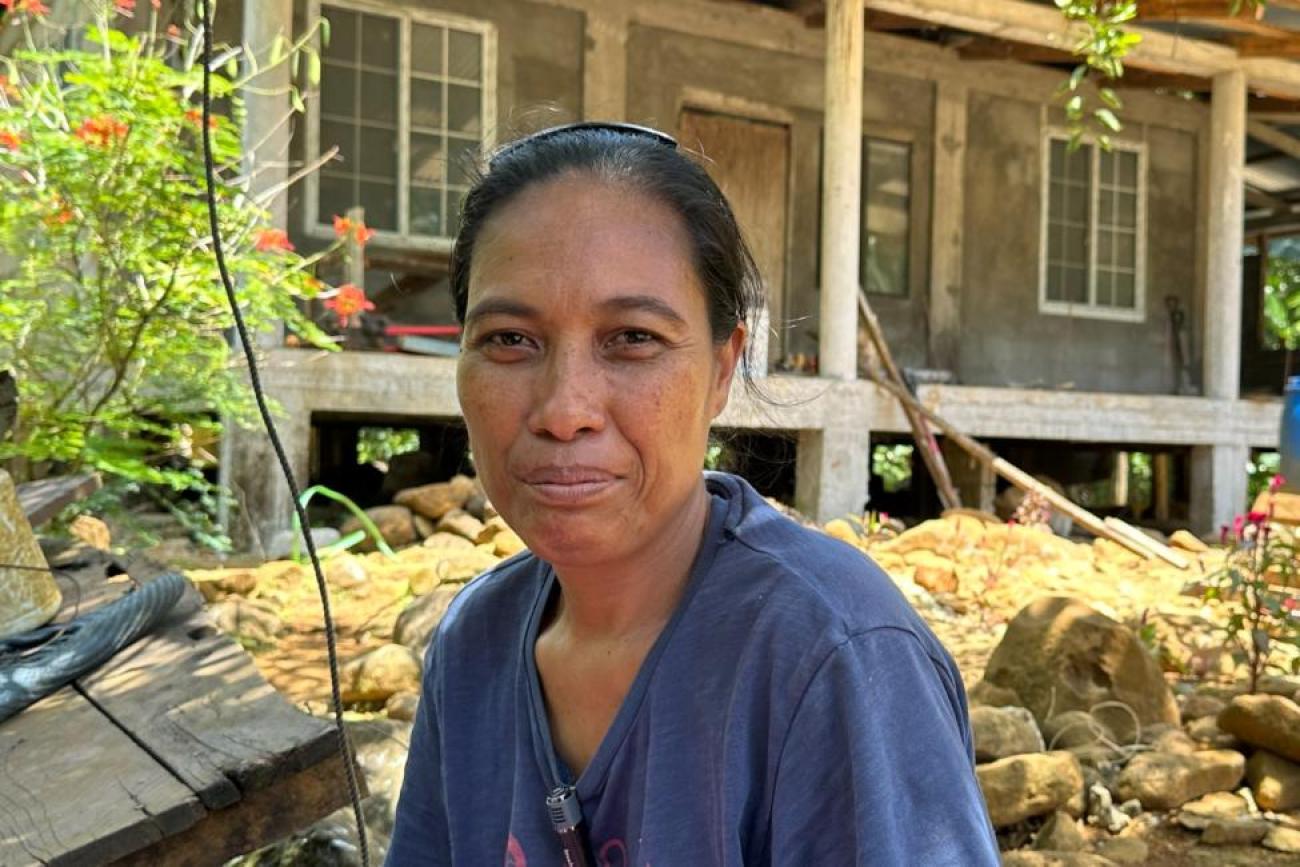
By:
Haimanot Abebe | Media and Communications Officer, IOM Micronesia
The road to Popo’s home is lined with many boulders.
Once a paved path, the route to her residence is now covered with water pebbles aside the Pil en Peilik river, which cuts through her family property in Kitti, located 20kms from Kolonia, the largest town in Pohnpei, Micronesia.
At the entrance to the house is Popo’s bountiful garden brimming with edible species, brightly colored flowers and naturally occurring shrubs. Surrounded by sprouts of pineapples, peppers, watermelons and taro, one feels privileged to be shaded under a lime tree in Popo’s garden and listen to her recount her story against the sounds of the river stream.
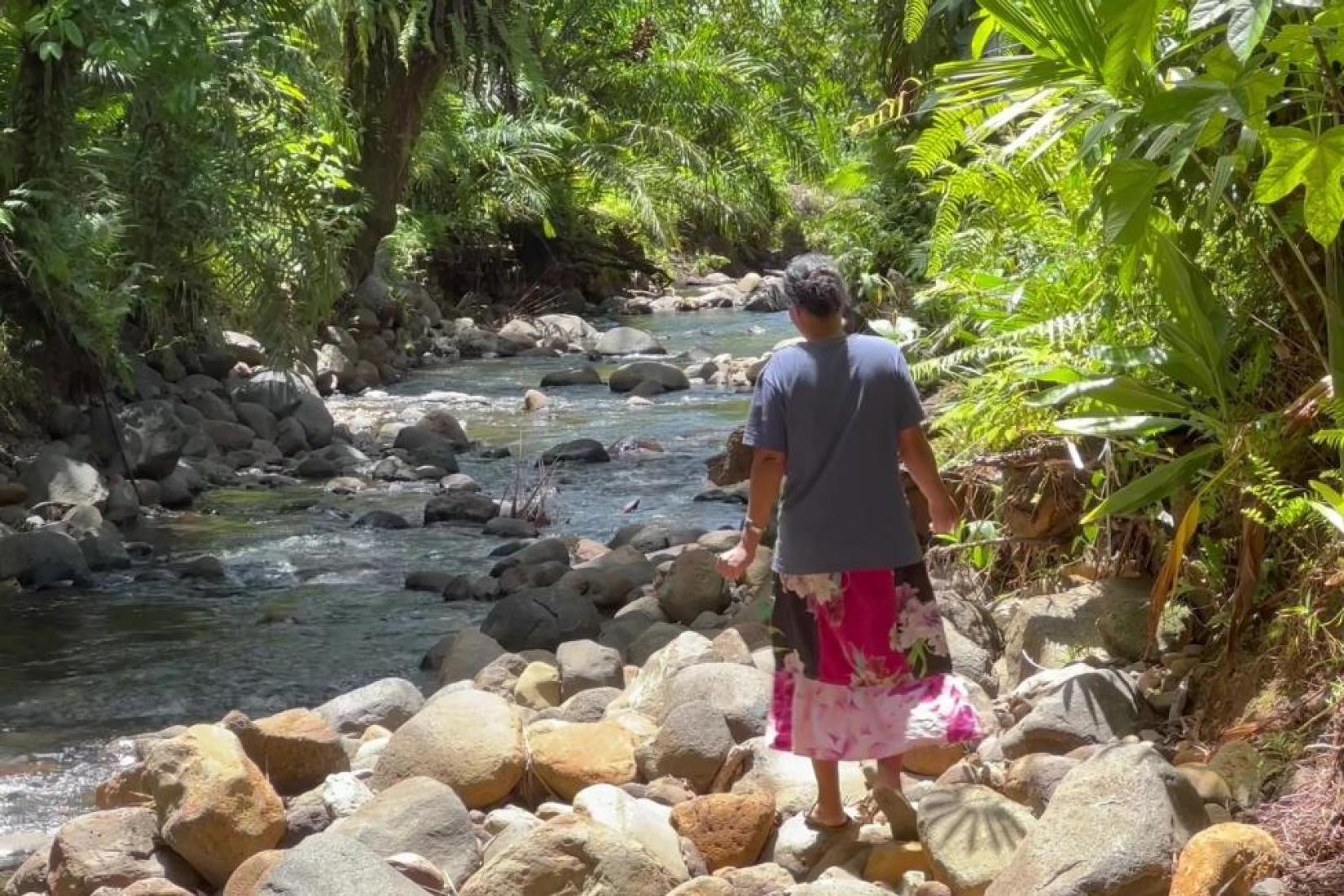
A sizeable mango tree planted by the edge of the river had fallen onto the roof of their traditional Pohnpeian home, crushing the roof and leaving part of the house exposed to the heavy rain and wind that afternoon.
Typhoon Wutip hit the Federated States of Micronesia (FSM) and parts of Asia and the Pacific causing great destruction along its path. The States of Pohnpei, Chuuk and Yap were most affected with homes, schools and clinics wrecked and household crops damaged from the extreme winds.
In total, Wutip shattered 136 homes and damaged 38 public facilities.
More than 11,000 people were left without food or shelter.
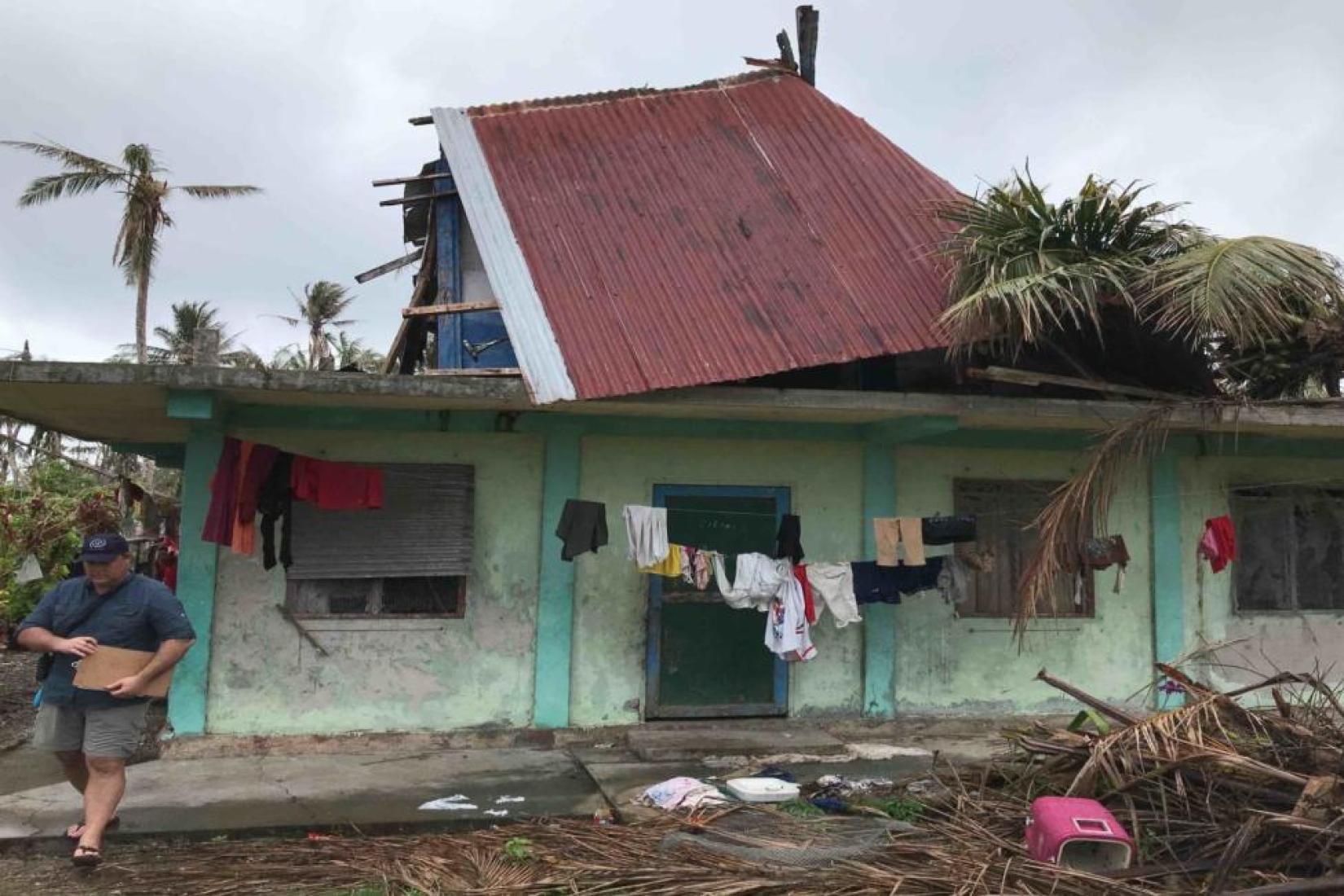
In Popo’s family property, the storm had caused the river to rise with strong currents uprooting trees and washing pebbles down the riverbed.
“I was always worried about our house,” Popo points to their home made of wood beams, a corrugated iron roof, and wooden lattice walls that wrap around three sides of the house.
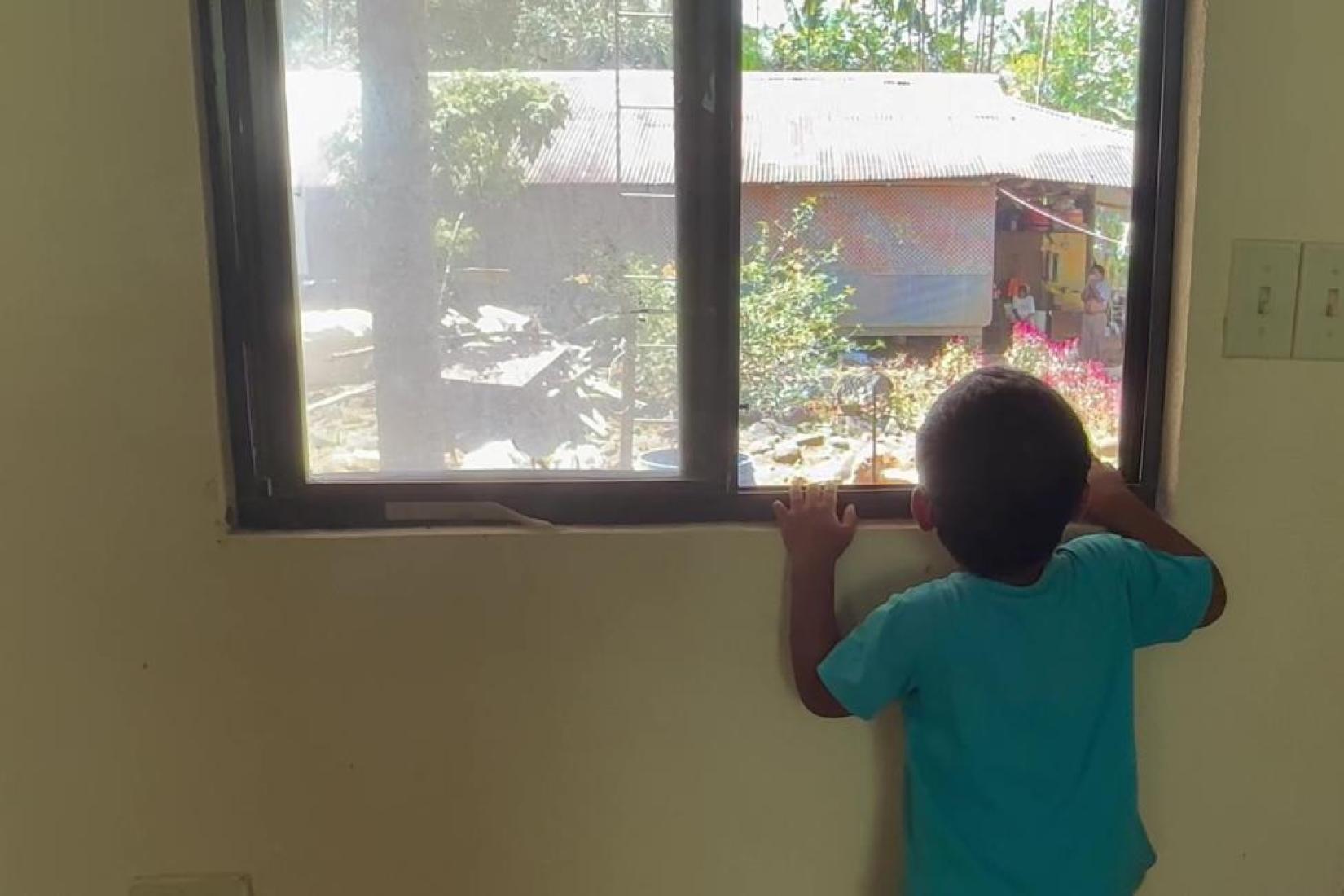
Popo, whose real name is Liwihne Miguel, is a single mother of five children, three of whom she has adopted. Together, they live in her Kitti home along with Popo’s mother, a vibrant 89-year-old woman who, despite her slow, measured movements, exhibits a bold and spirited demeanor.
Determined to protect her family, Popo knew she needed to reconstruct her home, a sturdier one that would withstand the forces of the wind gusts and heavy rains common to Pohnpei’s tropical climate, especially from April to September when typhoons typically sweep over the Pacific states.
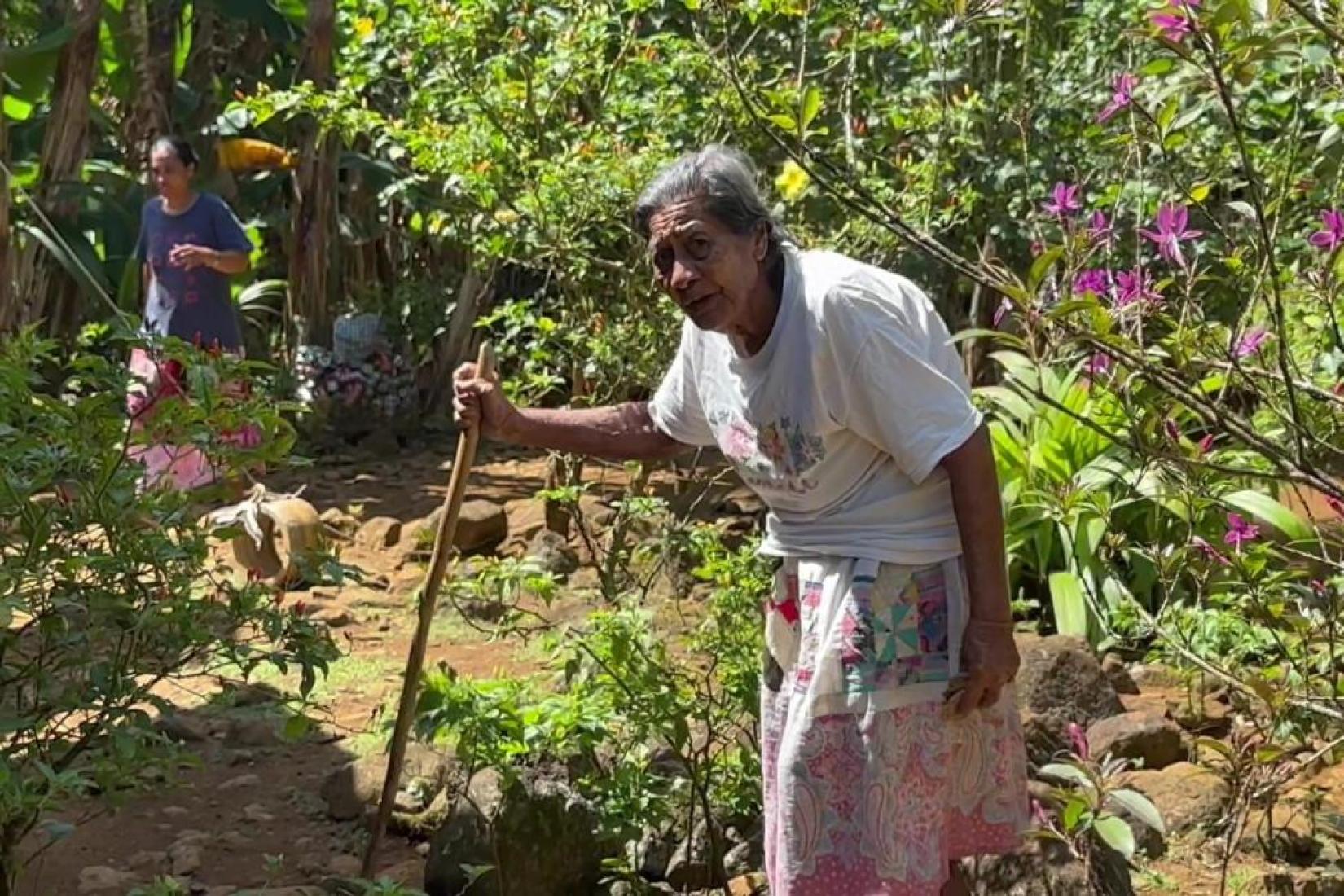
Following an IOM-supported Joint Damage Assessment conducted by the FSM and the United States Government, Popo was identified as a beneficiary in need of financial support to repair and upgrade her home.
“With the [voucher assistance] money, I bought concrete blocks, gravel, iron sheets…and nails for the roof. Materials are too expensive in Pohnpei these days,” she says. “But I bought as many materials as I could.”
Supported by IOM’s voucher program as well as with funds raised from her family and her own earnings, Popo managed to reconstruct a concrete structure with tiled floors, aluminum windows, and a spacious veranda overlooking the garden. The stilt house sits on thick concrete pillars that raise the structure from the ground to protect it against flooding.
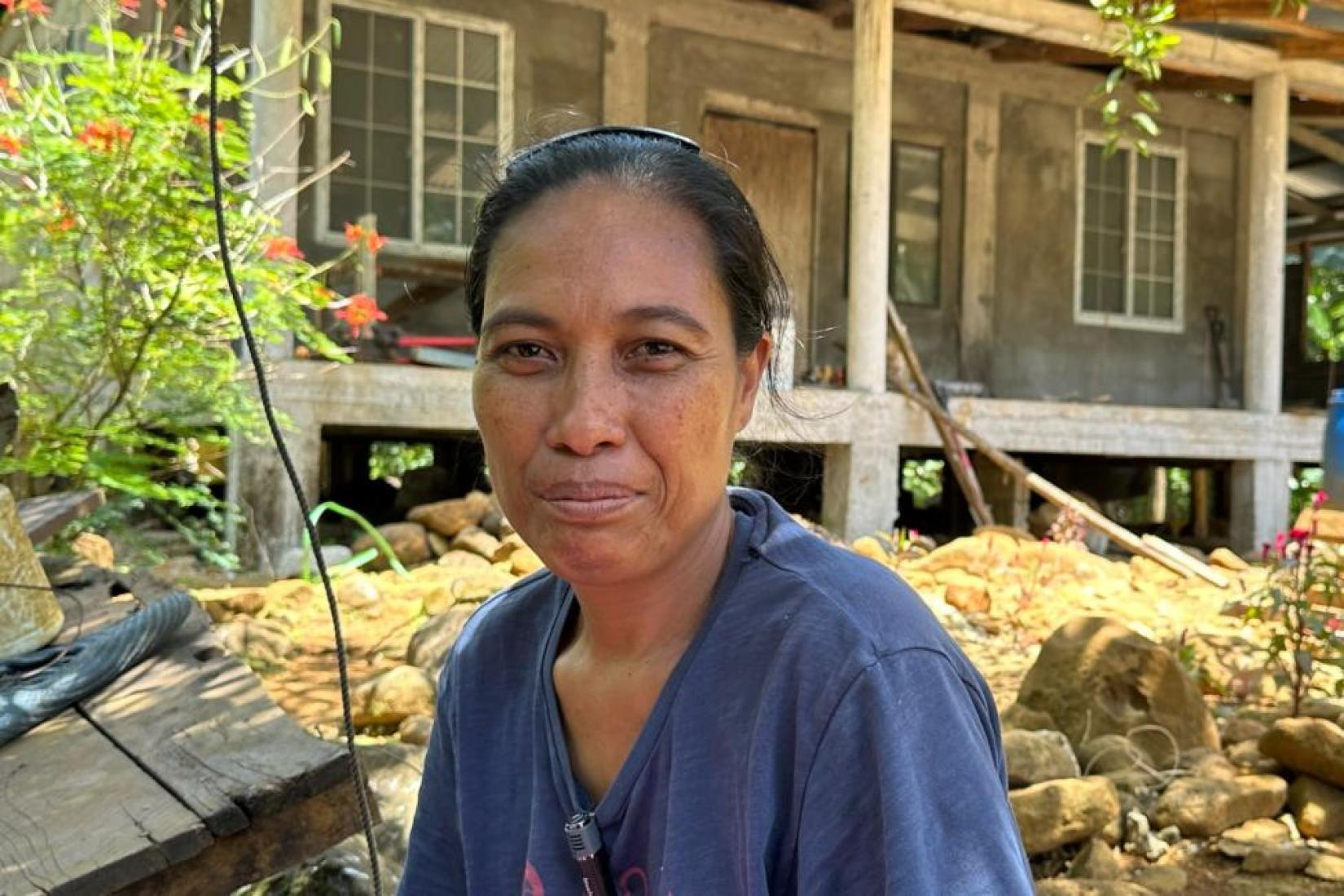
Following Typhoon Wutip, IOM’s Disaster Resilience in the Compact Nations (RESILIENCE) project, supported by the United States Agency for International Development (USAID) and together with key Government of FSM agencies, moved rapidly to assess the damage caused by the tropical storm.
The project was also responsible for identifying impacted households like Popo’s that needed assistance rebuilding what they had lost. Households with major and minor damages were assisted with different packages including start-up, repair and transportation assistance.
The RESILIENCE voucher assistance program aims to reach 246 beneficiaries whose homes were damaged or destroyed.
Supported by her brothers, neighbors, and friends in the construction work, Popo was able to greatly minimize her labor costs and effectively utilize the voucher assistance given to her to obtain construction materials she needed and finish the upgrade of her home.
Almost completed, her house sits proudly on the east side of her mother’s vast Kitti property, with minor touches to be finalized before she and her family can move in.
Funded by USAID, the RESILIENCE project aims to enhance the local capacity of the Governments of FSM and Republic of the Marshall Islands to prepare for, respond to, and reconstruct after natural disasters. In FSM, RESILIENCE works to repair and reconstruct public infrastructures and private homes significantly damaged due to the impacts of Typhoon Wutip including through assistance for target households.







